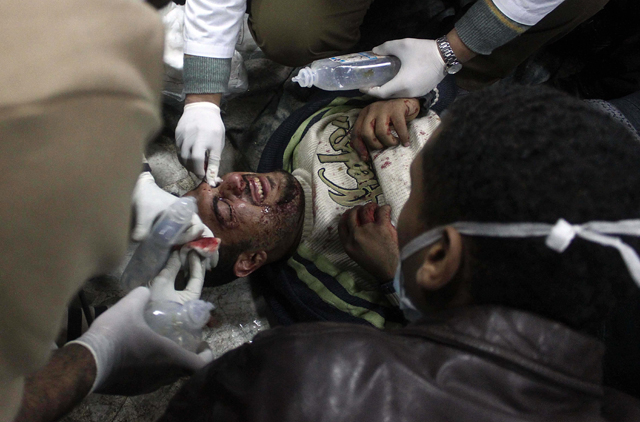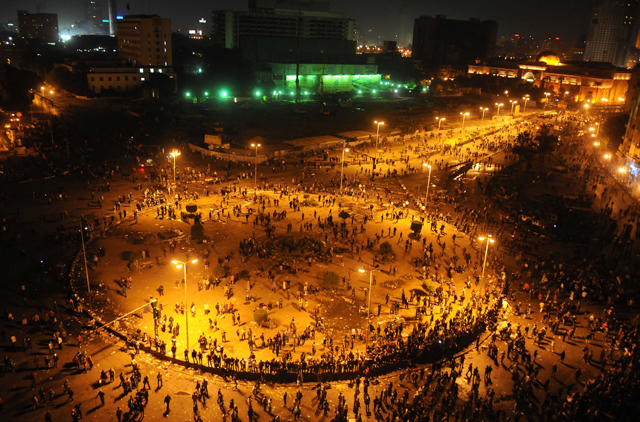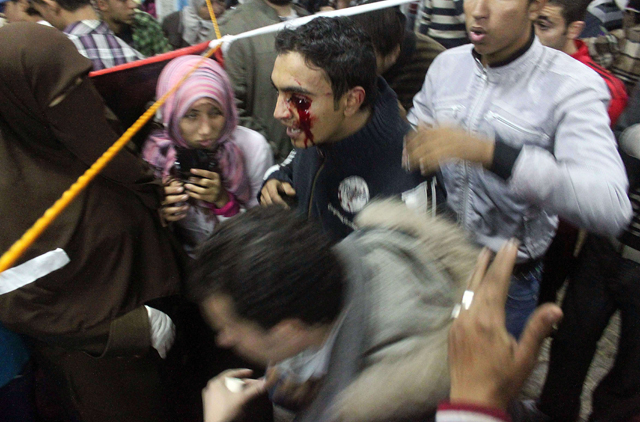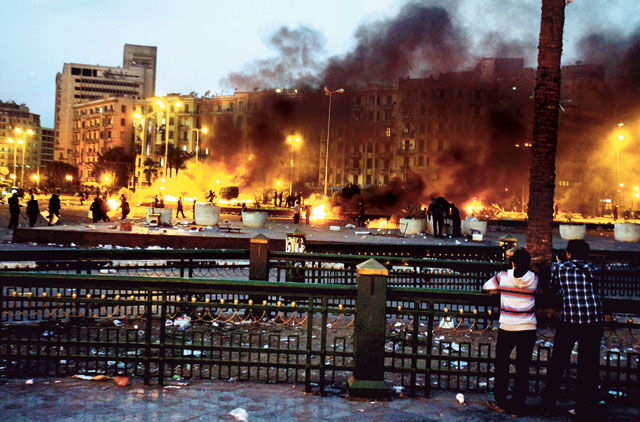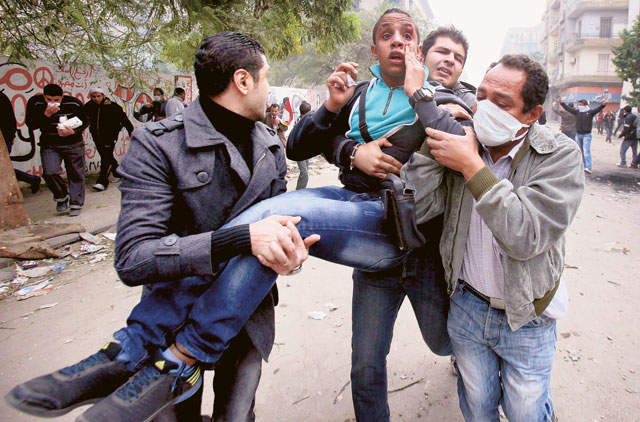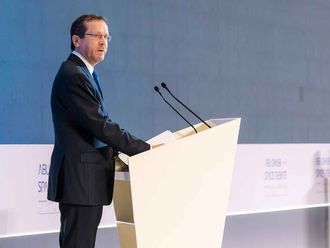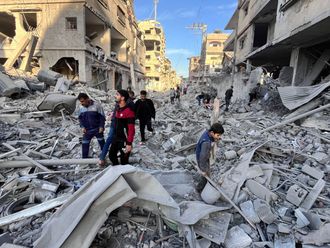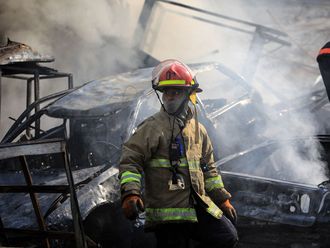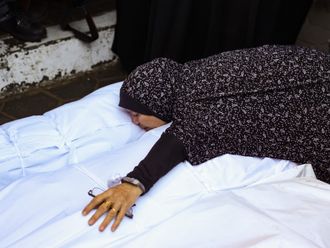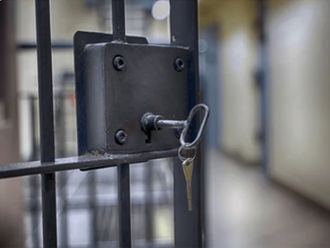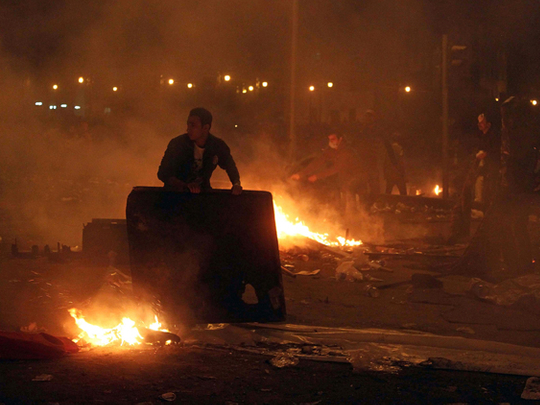
Cairo: Egypt's culture minister has resigned in protest at the government response to demonstrations in Cairo's Tahrir Square in which more than 20 people have died, the official MENA agency said on Monday.
Emad Abu Gazi handed his resignation to the ruling Supreme Council of the Armed Forces - which took power when Hosni Mubarak was ousted in February - "in protest at the government's handling of the recent events in Tahrir Square," MENA said.
Death toll
Egypt's health ministry said earlier on Monday that the death toll from clashes between protesters and police around the country over the last three days had climbed to 22.
"The deaths in (Cairo's) Tahrir Square and several provinces has reached 22," since clashes broke out on Saturday, the health ministry said in a statement carried by the official MENA news agency.
Cair, Alexandria, Suez
Hundreds have also been injured during the protests that broke out in Cairo, Alexandria and the canal city of Suez.
Police have been locked in violent confrontations with protesters demanding the end of military rule, with numbers mid-morning beginning to swell in Tahrir - the symbolic heart of demonstrations that toppled Hosni Mubarak in February.
Tahrir Square protesters
Earlier it had been reported that at least 13 people were killed on Sunday as security forces tried to clear protesters from Cairo's Tahrir Square, casting a dark shadow over Egypt's first elections since Hosni Mubarak's downfall.
Police and military forces used batons, tear gas and birdshot to clear the central square of thousands of protesters demanding that the ruling military cede power to a civilian authority. It was the second day of violence in the Egyptian capital, following a peaceful anti-military mass rally on Friday.
Morgue officials said 13 people died on Sunday and two people on Saturday, kicking off a violent countdown to the country's first elections since the end of former president Mubarak's 30-year-rule. The legislative elections are due on November 28.
'1,700 wounded over the weekend'
At least four people had been shot dead on Sunday, the officials said. The health ministry said 10 were killed Sunday and 1,700 wounded over the weekend in the clashes, in a statement to the official MENA news agency.
Earlier Dr Mohammad Fatuh, who heads a field hospital in the square, confirmed to AFP that three more bodies had been brought in bearing bullet wounds.
Medics earlier reported four deaths, one from live fire and three from asphyxiation after tear gas was fired. Police and troops seized the square only to be beaten back by protesters who retook it later, as had also happened on Saturday.
The situation remained fluid with ongoing clashes around Tahrir - the symbolic heart of protests that toppled Mubarak in February. An AFP reporter said late on Sunday that on one street protesters were throwing stones and petrol bombs at military armoured personnel carriers and riot police.
Shotgun fire, rubber bullets
He said military police had responded with mostly shotgun fire and rubber bullets. When there was steady fire some protesters began to run while others chanted "Hold fast! Hold fast!" and "We won't leave!"
There were heavy clashes on side streets leading to the interior ministry as protesters chanted "The people want to topple the field marshal" - Hussain Tantawi, Mubarak's long-time defence minister who heads the ruling military.
Activists tweeted a video they said showed police dragging a corpse on the ground, in what appears to be Tahrir Square, and leaving it by a rubbish dump.
In the Mediterranean city of Alexandria, a funeral procession for one of the victims degenerated into clashes with the police who fired volleys of tear gas at mourners, the official MENA news agency reported.
Suez
In the canal city of Suez, troops fired live rounds into the air to stop protesters from storming a police station in the city centre. Protests also broke out in the central cities of Qena and Assiut, a security official said, adding that 55 people had been arrested nationwide.
Egypt's cabinet, which held crisis talks for several hours before moving en masse to the headquarters of the ruling Supreme Council of the Armed Forces (SCAF) for another meeting, said in a statement that parliamentary elections scheduled for November 28 would go ahead.
Makeshift hospitals
Throughout the day, sporadic clashes erupted near the interior ministry on the outskirts of Tahrir Square, which was covered by clouds of tear gas and littered with stones and glass. In makeshift hospitals set up in mosques around the square, demonstrators were treated for tear gas inhalation and injuries from rubber bullets and birdshot.
The SCAF, in a statement read out on state television, said it "regretted" what was happening. It said it was committed to the elections timetable. Earlier Mohsen Al Fangari, a member of the council, insisted the election would go ahead as planned and that the authorities were able to guarantee security.
"We will not give in to calls to delay the elections. The armed forces and the interior ministry are able to secure the polling stations," Fangari told a talk show on the Egyptian satellite channel Al Hayat.
Delay in legislative polls
Several prominent political figures and intellectuals, including former UN nuclear watchdog chief Mohammad Al Baradai, earlier issued a call for a delay to the legislative polls. They submitted a new transition roadmap which would see an elected constituent assembly draft a constitution and then a presidential election would be held, followed by parliamentary polls.
The recent street protests have seen the return of riot police, the branch of the interior ministry most used by the Mubarak regime in its crackdown against protesters but rarely deployed since.
Hand over power
Friday's rally, which grouped Islamist and secular activists, called on the military to hand power to a civilian government. It also demanded more control over the constitution the new parliament is to draft.
Protesters called for the withdrawal of a government document that proposes supra-constitutional principles, which could see the military maintain some control over the country's affairs and keep its budget from public scrutiny.
The military says it will hand over power after a presidential election, which has yet to be scheduled. Friday's demonstration passed without incident, but when demonstrators returned to the square on Saturday, they were met with violence by security forces.
On Saturday, medics announced the deaths of Ahmad Mahmoud, 23, who sustained a bullet wound to the chest in Cairo, and Baha Eddin Mohammad Hussain, 25, hit by a rubber bullet in Alexandria as protests spread.
Brussels
In Brussels, the European Union called on Egypt to respect human rights. "I urge calm and restraint and condemn the use of violence in the strongest terms," the EU's foreign policy chief Catherine Ashton said in a statement. "Law and order must be ensured in a manner respectful of human rights," she added. se/bm AFP


